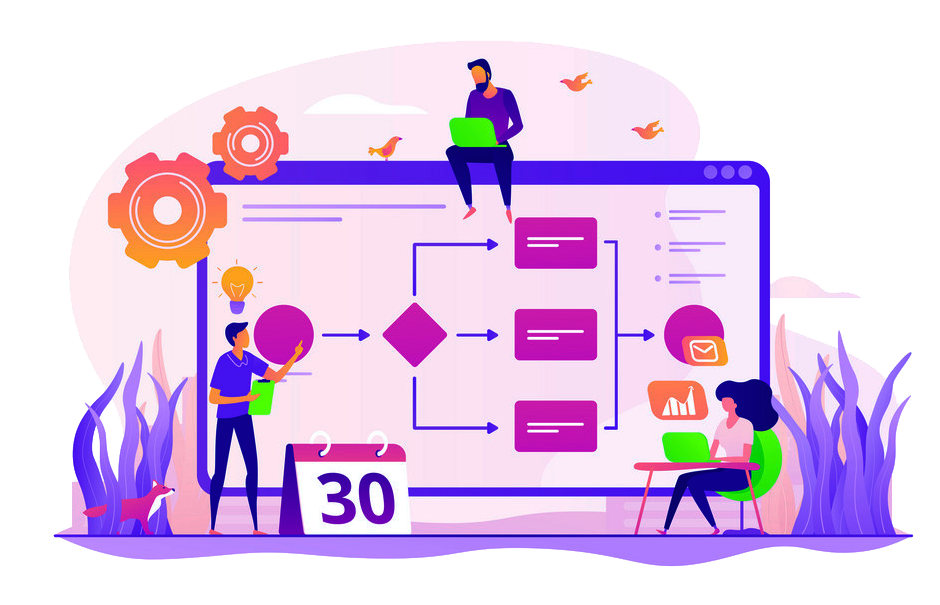Agile Digital Transformation vs. Digital Transformation
What is an Agile digital transformation?
Agile digital transformation is founded on proof that successful digital transformations take place through continuous innovation. When companies radically change their business models and capabilities in measured steps over time, they are empowered to launch, learn, and re-launch digital initiatives – rapidly responding to market changes and customer needs.
What is digital transformation?
Digital transformation involves implementing digital technology to transform business by replacing and modifying manual processes with digital processes. In fact, this kind of transformation is geared towards streamlining internal processes and elevating the customer experience. Digital solutions enable companies to automate tasks and procedures, enabling foundational changes to the organisation and increasing value to its clients.
What is the difference between Agile Transformation and Digital Transformation?
Agile Transformation
Agile refers to project management for software development which is used for methodologies like Scrum or other framework types. In sum, Agile is a set of principles that are applied to software creation. These principles have also spread into other functions and other aspects of modern businesses.
An Agile transformation plans to deliver functions across the entire organisation to adopt the ideal blend of lean principles by cultivating engagement and collaboration.
Digital transformation
Digital transformation transforms businesses by radically changing processes and business models. This type of transformation allows companies to rethink their business model whilst keeping a strategic digital mindset. Of course, Digital transformation is a customer-oriented process that seeks to fundamentally change and enhance the customer experience through digital automation tools.
Similarly, technology is a vital component of a digital transformation methodology that leverages emerging technologies and delivers on customer outcomes.
Agile transformation vs. digital transformation: benefits
Agile Transformation
If applied correctly, Agile project management will provide value to the end-users. Implementation of Agile methodology with an emphasis on Agile values/principles would provide the desired outcome and can result in greater satisfaction for a customer as well as other stakeholders. Other benefits of Agile include:
- Increased communication between testing and development teams
- Heightened protection against error
- Risk reduction and cost control
- Shorter time to market and product delivery flexibility
- Ability to pivot without disrupting the development process
- Total transparency
Digital transformation
Although transforming the way your business operates can be difficult, companies that have successful digital transformation initiatives can expect to see a 17% return on investment (ROI) over the next year. Some additional benefits of digital transformation include:
- End-to-end user-friendly experience
- Enhanced resource management
- Automated workflow processes
- Increased efficiency
- The digitalisation of business operations
- Innovative products and services
- Growth of new and existing market opportunities
Key characteristics of Agile marketing
Although every marketing implementation will look slightly different, they will share some important characteristics. For a truly Agile system, make sure you and your team are hitting these points:
A shift in mindset
Marketers on an Agile team should view their work differently. They exhibit respect, collaboration, focus on delivering value, the ability to adapt and take pride in ownership.
Experimentation
An Agile environment doesn’t work well with long-term, rigid plans. Instead, businesses should conduct a lot of small experiments frequently. The team then applies the results of those experiments to their next round of work.
Adherence to the Agile manifesto
The values and principles stated in the Agile manifesto should be the final authority for most judgements on an Agile marketing team.
Supportive leadership
People who are in leadership roles should serve their team. Agile leaders are focused on helping the team succeed, not on reaching sales figures at any cost.
Teamwork and cooperation
Individuals on an Agile team also act differently – they’re always looking for ways to join forces to do better work.
Data-driven marketing
Agile teams are truly driven by their data. Agile teams rely on data to test the success of their ongoing experiments and to drive better results. They make sure all of their work can be measured, and they rely on empirical evidence to make decisions.


